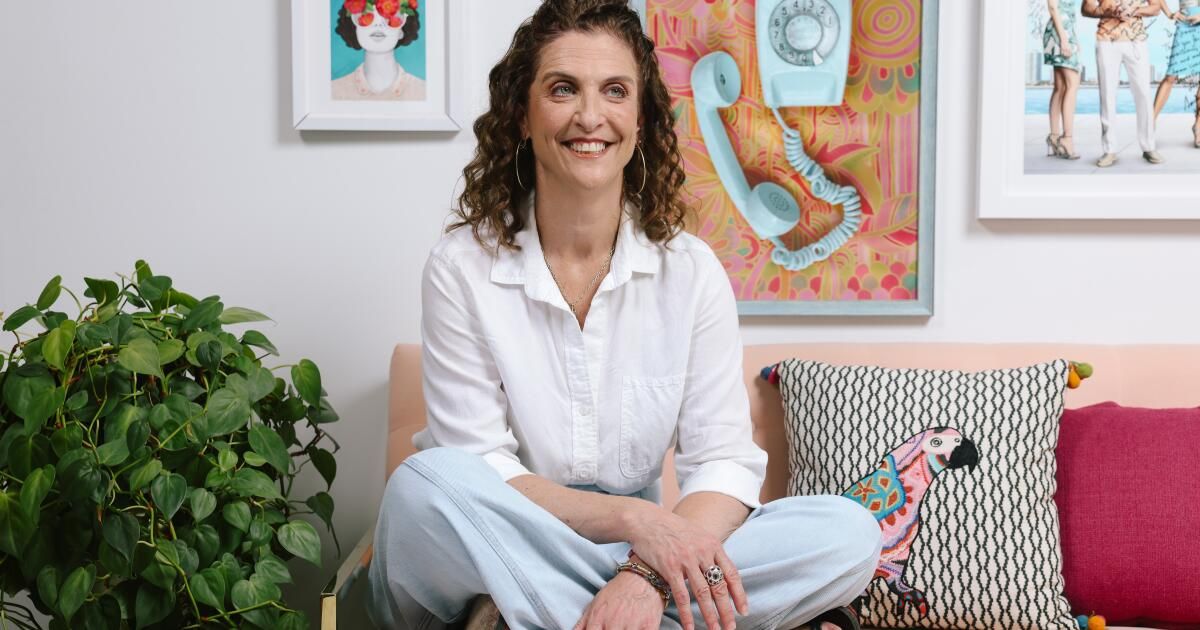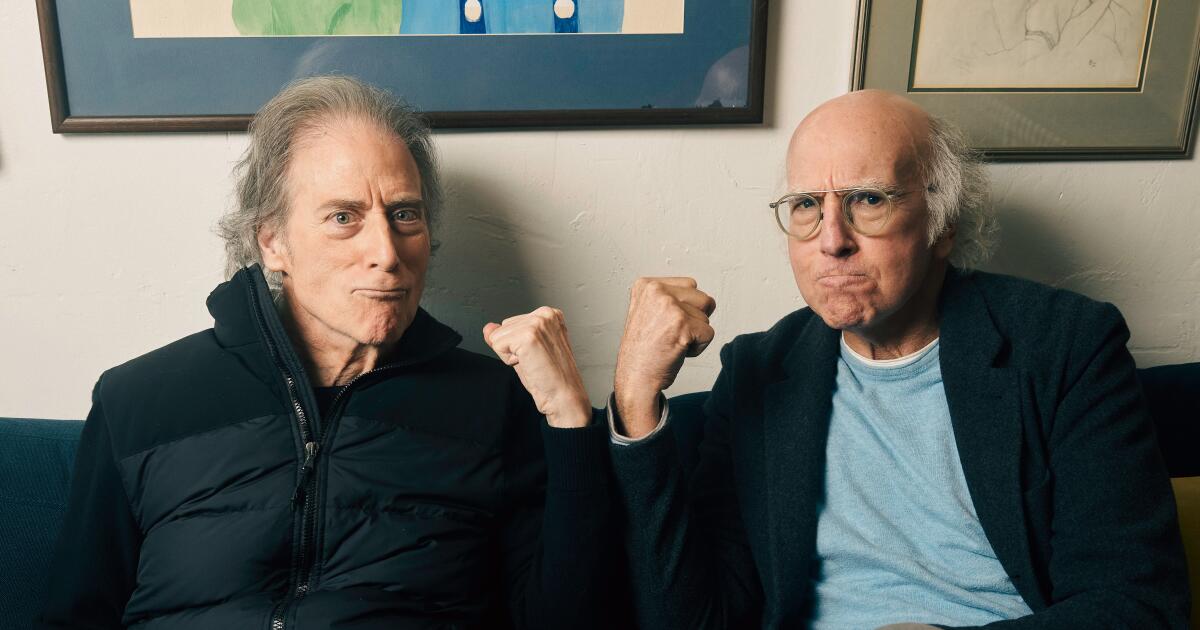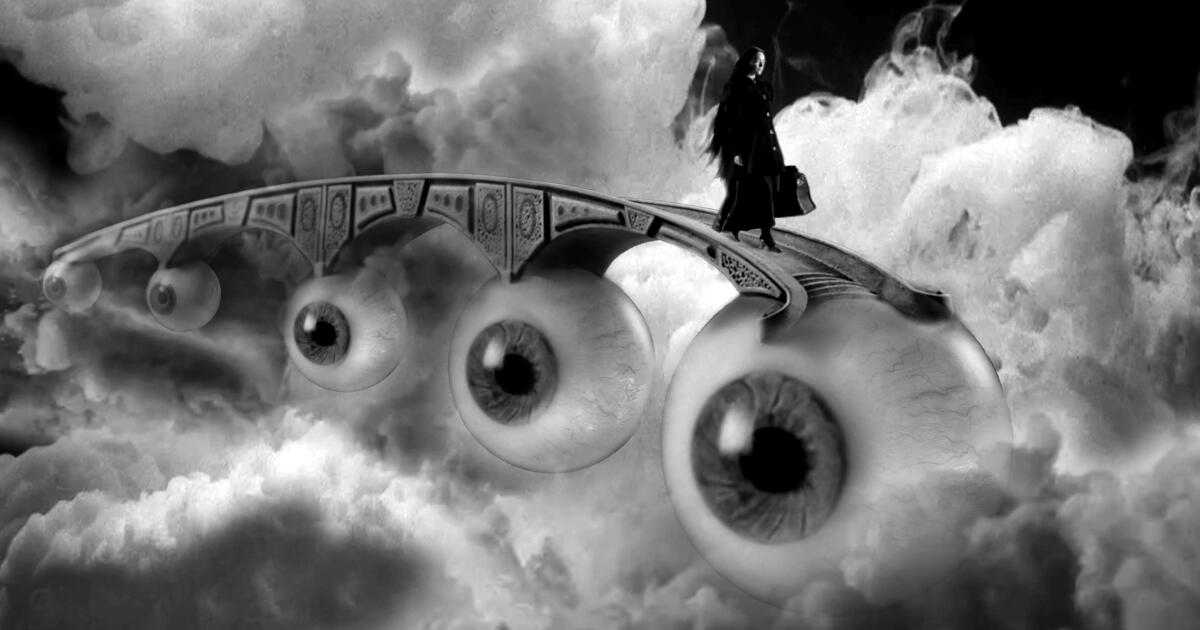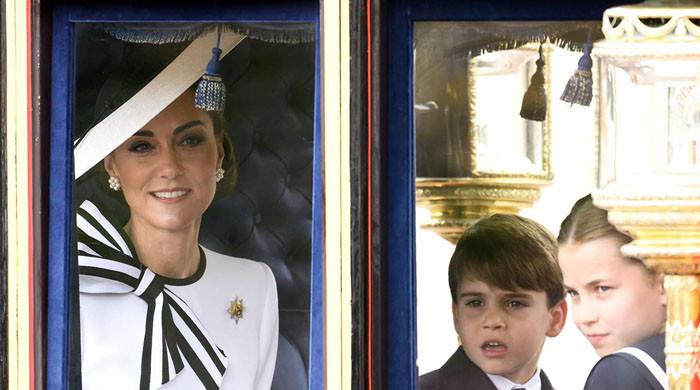When most people think of “Matlock,” they imagine a burly, white-haired Andy Griffith as the title character, a down-to-earth but intelligent defense attorney with a Southern drawl who often wore a seersucker suit.
But this fall, Jennie Snyder Urman gives Matlock a makeover: Instead of a man, the character is now an older woman who's a superhero of sorts, armed with candy canes and cunning tactics that allow her to win cases and expose corruption.
The “Jane the Virgin” creator and showrunner had been looking for existing series to produce through her company, Sutton St. Production. When she settled on “Matlock” as a title with modern potential, she learned that another production company, Cloud Nine, had already picked up the rights and were looking for a writer to direct.
“I did the same thing I did with ‘Jane the Virgin’: I never say yes or no to anything,” Urman recalls. “I say, ‘I’ll think about it,’ and I go for a long walk.” And so she did, taking a roughly two-hour stroll near her home in Encino. “By the time I finished the walk, I had the pilot from start to finish of what this shot would be,” she said. “And then I presented it.”
Her vision, which premieres Sept. 22 on CBS, stars Oscar-winning actress Kathy Bates as Madeline “Matty” Matlock, a streetwise septuagenarian trying to reenter the workforce. But she has an ulterior motive for landing a job at a prestigious Chicago law firm, which is revealed at the end of the hour and sets the season in motion. Fittingly, it brings Bates back to the world of legal drama more than a decade after she starred in David E. Kelley’s “Harry’s Law,” which was canceled by NBC in 2012 — even though it was one of the network’s most-watched dramas — because it didn’t appeal to young viewers.
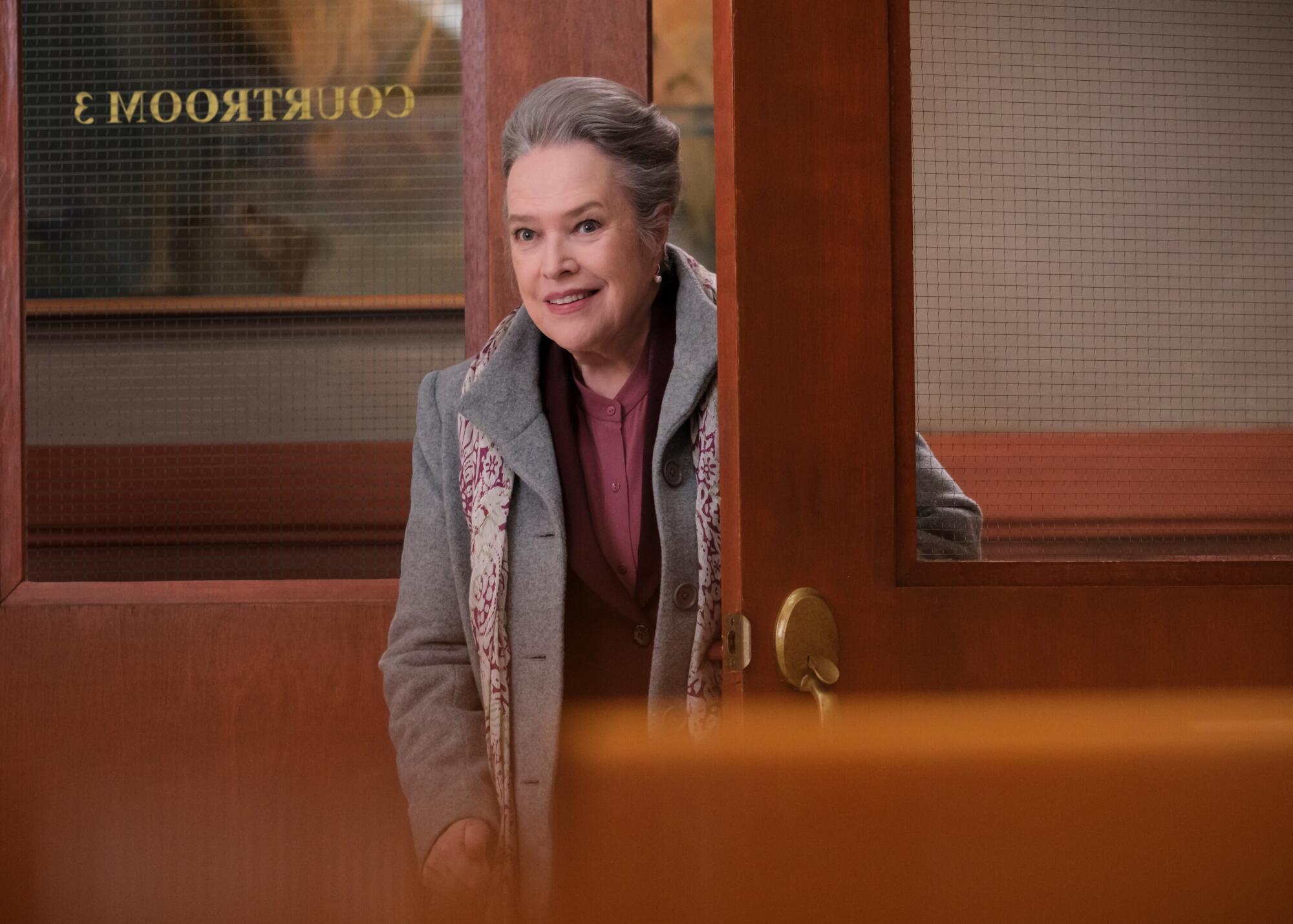
Kathy Bates stars as Madeline Matlock in the new drama series “Matlock.”
(Brooke Palmer / CBS)
Urman, who turns 50 next year, said she had been thinking a lot about older women and how much experience counts as we age.
“Does it start to matter less as I get older? Because it seems like society thinks that, but I actually feel smarter than when I started,” she said. “I just thought, what if I could create a character that was constantly telling the audience that they are underrated? We see that happen over and over again, we watch it and we enjoy it, and then at the end, us He even underestimated her.”
Eric Olsen, the actor and founder of Cloud Nine, suggested that Matlock is “like Batman: he goes to his lair,” Urman said. “I hadn’t thought about that at all. But it’s interesting, because where is the older superheroine?” She “She is. She is doing it. She is a complicated character.”
In a recent video call, Urman talked about letting viewers know from the start that this is… and Isn't that “Matlock” from her grandmother? Why was Bates the right person to breathe new life into the character, and she wanted to be able to use some narrative resources from “Jane the Virgin” in the legal drama?
Less than five minutes into the show, you make it clear: this is not the “Matlock” you think it is.
Yes, that had to happen from the beginning. We had to explain to the audience what the parameters of the world are that they're seeing. Right away, she's Matlock, but she… it's not Matlock. “Matlock” exists in the world. She knows there is a TV show, she recognizes it. What we wanted to do at that point was to reassure everyone, both inside and outside the building. We know what you’re thinking: this is a reboot like you’ve seen before, but it’s NoBut we don't pretend that it doesn't exist. It allowed us to do a lot of work at once, both on characters and on shows. I think that's why I wanted to his Telling them right away makes people feel more comfortable. It makes you think, “Oh, ‘Matlock,’ my grandmother liked that show.”
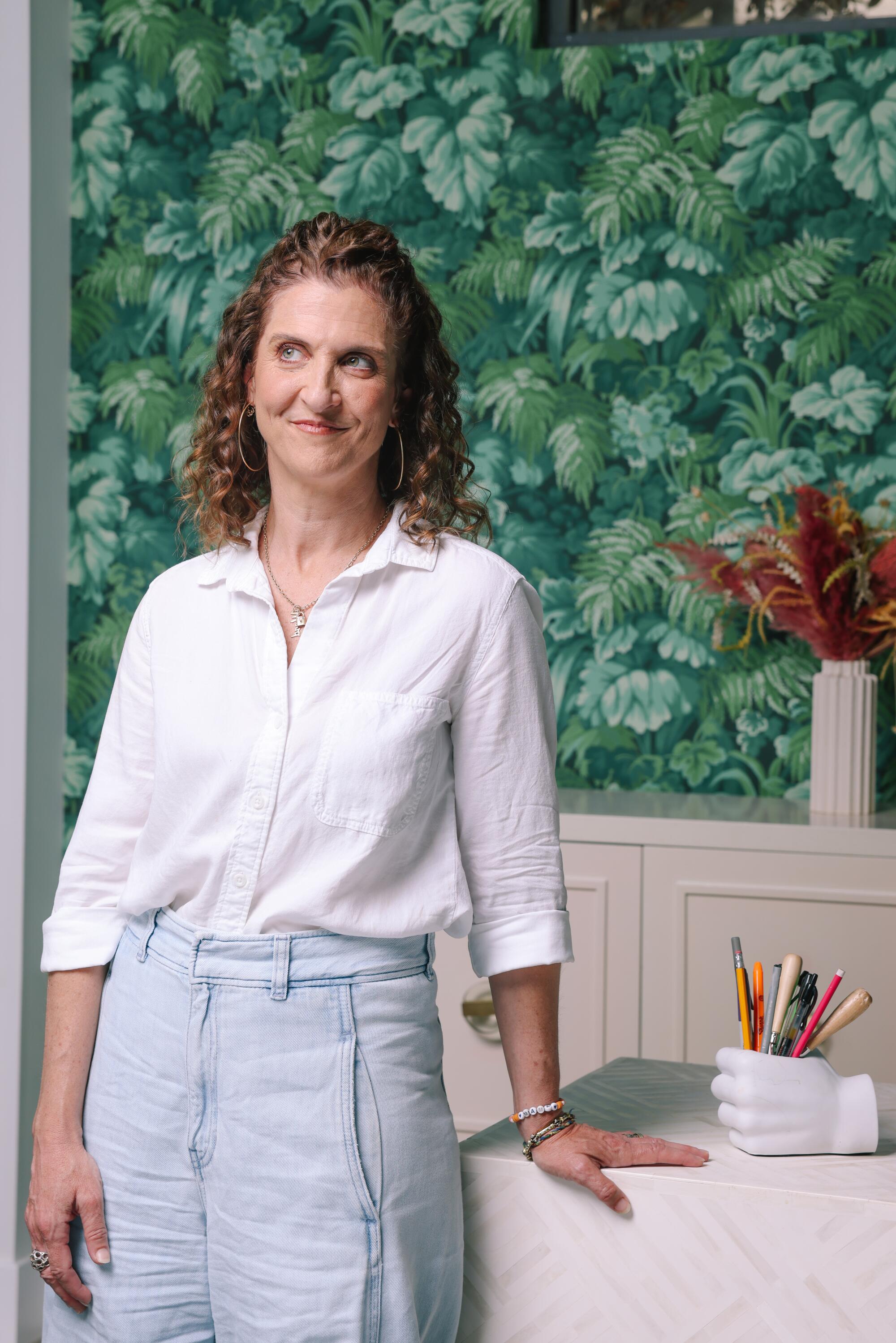
Jennie Snyder Urman said she's been thinking a lot about older women and what experience means as we get older: “Does it start to mean less as I get older?”
(Dania Maxwell/Los Angeles Times)
Matty constantly reminds the audience that she is being underestimated, and she uses that situation to her advantage. What is your experience with being underestimated?
Often when I enter [a room]Even at this stage, I have to prove to people that I know what I'm doing; not just when it comes to writing and characters, but I know what I'm doing when it comes to production, that I know what to do with money, that I know how we're going to make the budget work, those things. I feel like there's still a little bit of, “Oh, this is a creative person.” But you're not just a creative person in this job, you also have to be a business person and you're running this huge, huge production. I get that, too, because those aren't skills that you have when you start writing. But there's always a kind of, “What do you know?” I have to make sure that everyone understands that. Yo I understand what's going on and I understand what each job on this set is and what it entails. I often feel like people don't expect me to be involved in everything.
The series stars the incredible Kathy Bates. Why was she the best person to embody this kind of rebirth of the famous fictional character?
The levels that Matty has to operate on all the time (who else but Kathy can?) where you understand that she's playing a popular character, but she's got a steely personality underneath, and she'll make you love her completely. Then suddenly, in a twist, you'll realize, “Oh my God, I didn't understand her at all.” It's all those levels that are included. Kathy and I talk a lot about dialogue in scenes because we try to have our dialogue do three things at once: give a little bit of character; give a little bit of your thought. thisbut this What I love is that after the pilot, you're inside it. You understand, “Oh, this interaction that I thought was straightforward, there are so many other layers to it.” And Kathy can do that. So when we're talking, in a nutshell, I can say something like, “her mask falls off,” and Kathy gets it.
How did you relate to the original series as you embarked on the reimagining?In he?
I watched a lot of Matlock. I wanted to absorb the rhythms, the sensations and the expectations that would be generated. I had seen it before, but this time it was a remake, so that I would know, when we were doing those little moments, if we were referring to the original film or not.
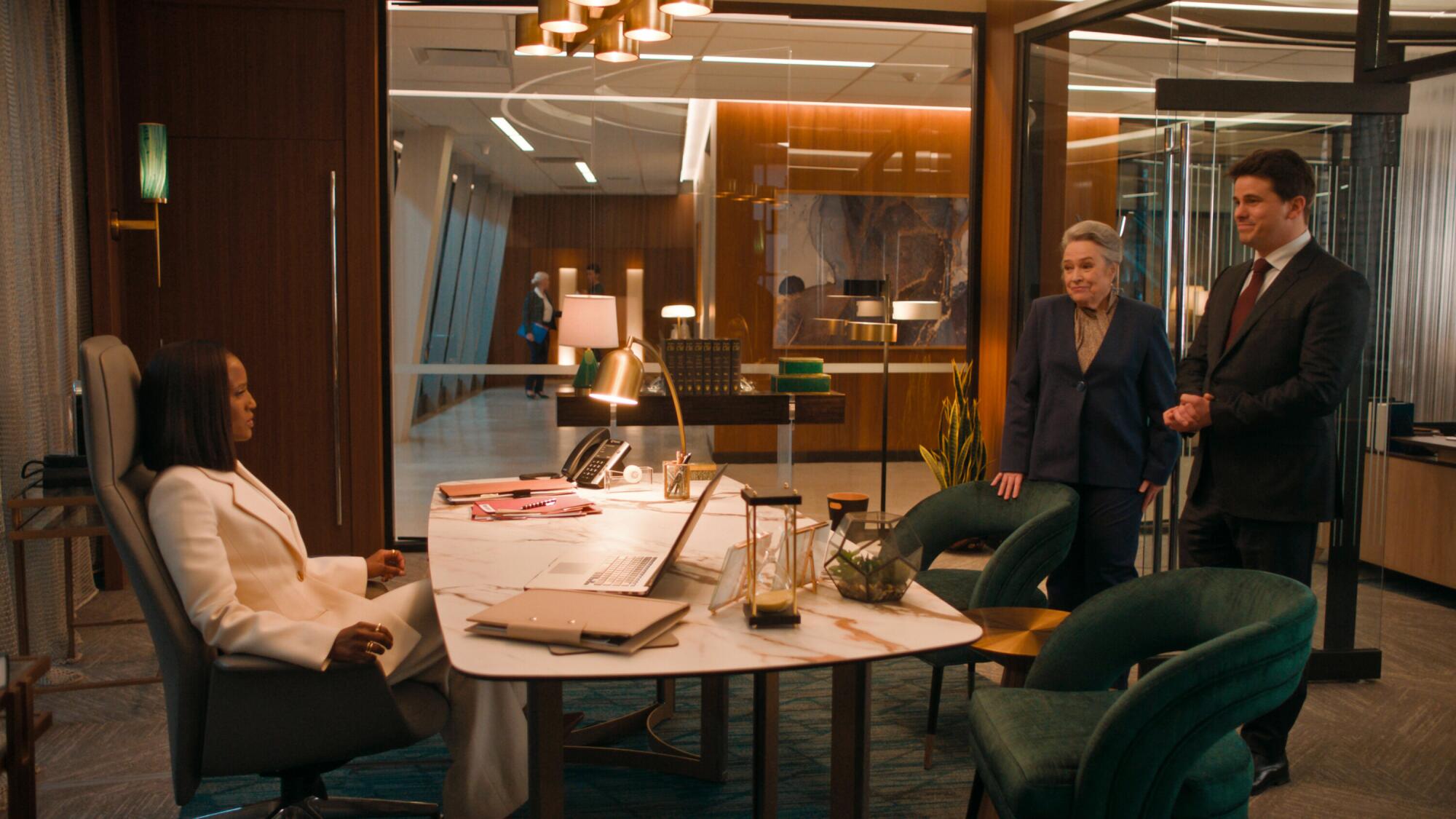
In “Matlock,” Skye P. Marshall, left, co-stars as Olympia Lawrence, with Kathy Bates as Madeline Matlock and Jason Ritter as Julian Monroe.
(CBS)
What struck you about the pacing of the original? There is much to admire in the simplicity and unhurried nature of that narrative.
It really takes time to set up stories in a way that we can't now. They really went into a lot of worlds and were very specific about it. They have a lot more time. You can do these long scenes where the table is set, which we can't do. Every ounce of our space has to be used in three different ways at once. Also, just getting to that courtroom at the end, where there's always going to be a “gotcha” moment, there's also something very comforting about that, knowing that the bad guy is going to be caught and the truth is going to come out.
I understand why we watch it. We want to feel the beats. We want to feel like things are working the way they're supposed to work. It's fun. I wanted all those pieces where you can have humor, you can have a character who's beloved, everyone knows him, and he's always going to give you what you expect. Our Matlock was going to tap into the familiarity of the original, both in terms of tone for the show and for viewers, and also within the world; she was going to be this simple, knowing person that you didn't have to fear because she was going to help you.
You're used to keeping viewers on their toes by introducing a nice twist or a slow reveal, and we accomplished that in the pilot. How is writing for “Matlock,” a basic procedural, similar or different than writing for “Jane the Virgin” What was based on magical surrealism?
We unraveled the stories the same way we did on “Jane,” which was through the eyes of the character, making sure that each scene was doing multiple things at once, that we weren’t just having a procedural beat, that it was a procedural beat that was also going to be a moment where Matty suddenly had to reveal more about herself than she wanted to. So we were looking at everything like: Where is Matty? What is she thinking? What does she want? And what’s underneath that? That’s the same thing we would say about Jane constantly.
I remember saying in the writers’ room, “If we’re going to commit to this, to doing a flashback at the end, it’s going to be very exciting to commit to, but it’s also going to be very difficult.” That puts extra pressure on the storytelling, which is that you have to have all your narrative cards up, and then you have to have a part with the cards down. And we usually have that with “Jane,” too. But here it adds a degree of difficulty, because it has to be true on the side that you’re seeing and true on the side that you didn’t see. That adds complexity. We’re splitting a story twice: into the cards up, then again into the cards down. But there have been many times where I’ve thought, “What I wouldn’t give for an element of fantasy to dramatize something!” or, “If only a storyteller could come along and say, ‘What you didn’t know is that she’s thinking about something right now,’ why don’t you do that?” this…' “
Nostalgia is a very common thing in Hollywood. You've worked on adaptations or reboots before, be it “Jane the Virgin” or “Delighted.” How has your vision on this topic evolved?
For me, it's project by project. If it's interesting enough and if I feel like there's a need, then I'm interested. And if there's an opportunity to do something different than what was originally done. That's my philosophy. You're always surprised where the creative spark comes from. I was surprised during that walk that suddenly this was the show I was going to write 100%. I've written things between “Jane” and “Matlock” that didn't get made. It's a tough business, and it's tough no matter where you are, and it's tough no matter what you're doing. I have the original piece and I'm like, “Now, are you ready? Now, are you ready?” But it didn't get made. And it's not like I was going to write something. fair To achieve this, because this job is very difficult. It is very difficult to do it if you don't have the real creative spark, inspiration and passion.

